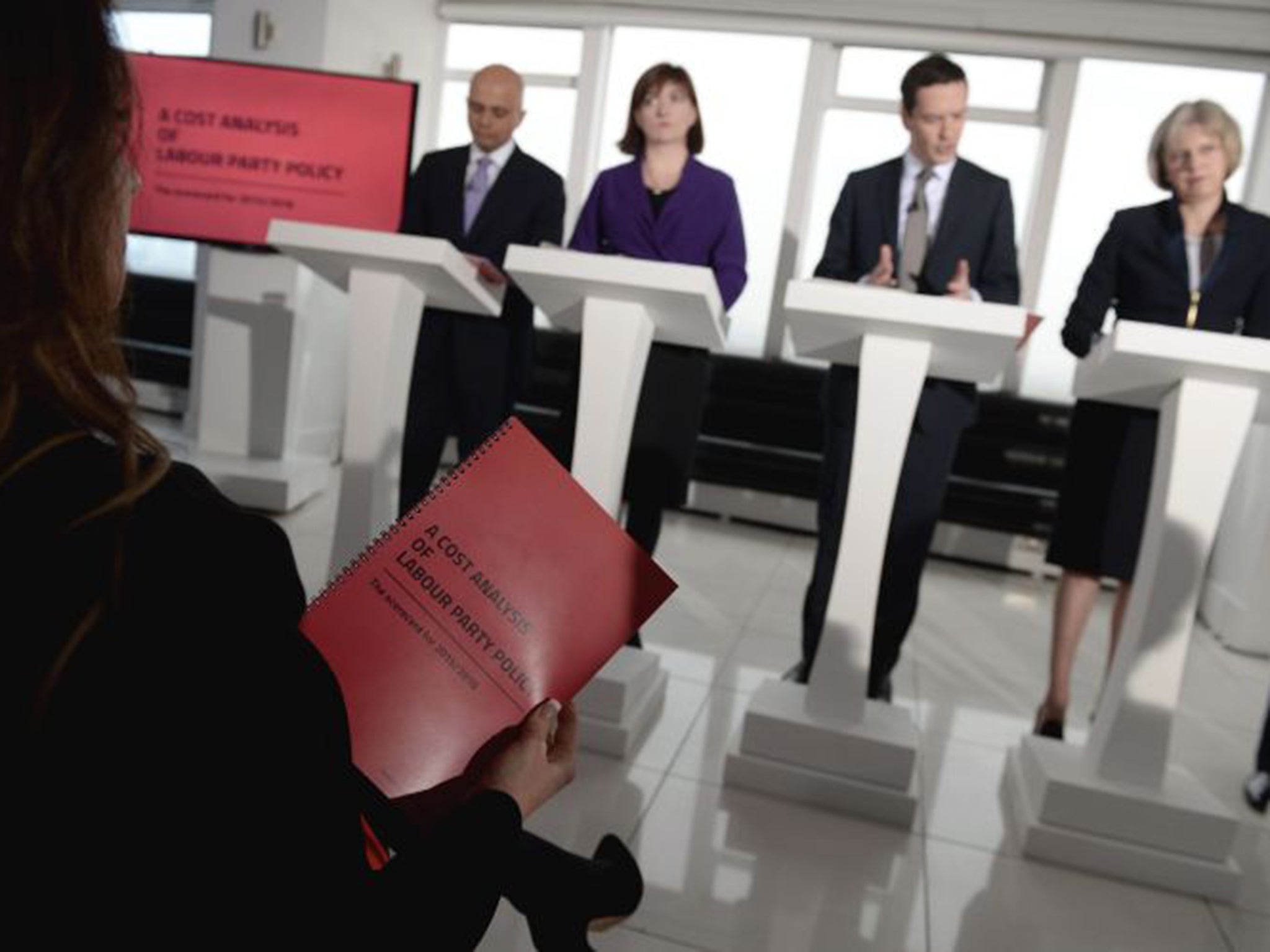Election pledges abound but whose figures can we trust?
It's the start of the longest general election campaign in modern times


“We are rebutting Labour’s rebuttal,” the Conservative spin doctor said. Welcome to the mad world of Westminster – and the start of the longest general election campaign in modern times.
At a time when public trust in our politicians is at a low ebb, it was a shame that the first day of the four-month campaign was dominated by a row over a “dodgy dossier” on Labour’s spending plans issued by the Tories.
The traditional trading of blows suggested the battle will create more heat than light. Both parties are playing their strongest cards and attacking the other party’s weak spot.
First Ed Miliband warned that the NHS “as we know it just won’t be there” in 2020 if the Tories win another term in power in May. That ignores David Cameron’s personal pledge to increase the health budget by £2bn a year.
Then came an 82-page “cost analysis of Labour Party policy” published by the Conservatives.
At his press conference, George Osborne seemed taken aback by the sceptical tone of questions from broadcasters and even journalists from Tory-supporting newspapers. He shouldn’t have been surprised. The Tories conveniently ignored Mr Miliband’s recent statement that Labour would cut non-protected Whitehall departments every year until the annual deficit had been cleared. (Labour would safeguard health, overseas aid and, almost certainly, education).
The Tories are working on the principle that some mud sticks. Their attack on Labour is plausible. Labour has not done enough since 2010 to convince voters it has learnt from its mistakes in office.
But the Chancellor, surprisingly, did not do his homework. It would have been better to ask Treasury officials to cost the Labour plans approved by the party’s National Policy Forum rather than clock up the cost of frontbenchers’ aspirations. In fact, Ed Balls, the shadow Chancellor, has kept the shadow Cabinet on a pretty tight leash – to the frustration of several members barred by him from making just the kind of pledges the Tories claimed as a fact.
Today was only the first of many such skirmishes. The Tories will convert their £20.7bn of unfunded Labour policies into a “tax bombshell” as they re-run their party’s successful 1992 campaign against another Labour leader nor trusted on the economy – Neil Kinnock. It is a bit rich given that David Cameron rushed out a back-of-an-envelope, unfunded pledge of £7.2bn tax cuts at the Tory conference in October. No doubt Labour will convert Mr Osborne’s plans for about £60bn of cuts in the next Parliament into the most gruesome options.
The sensible way to guide voters through the fog of the election war is for the Office for Budget Responsibility (OBR), the independent fiscal watchdog, to analyse the pledges made by all the parties. Mr Balls called for this 17 months ago. Mr Osborne has stalled, saying he will look at the idea after the election. If he was really confident about his dossier, he would surely call in the OBR immediately. There is still time for it to perform a vital public service before May.
Join our commenting forum
Join thought-provoking conversations, follow other Independent readers and see their replies
Comments
Bookmark popover
Removed from bookmarks